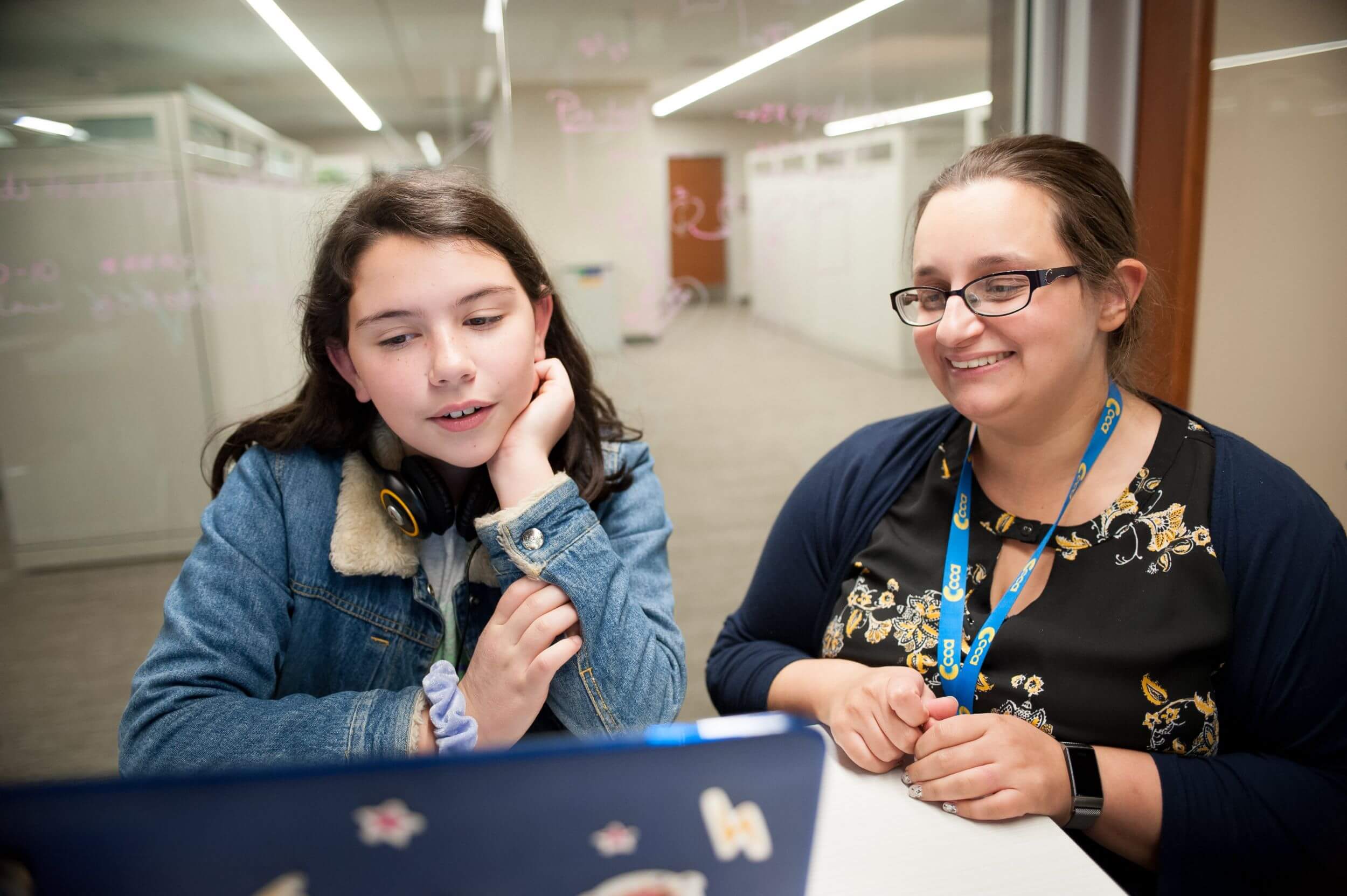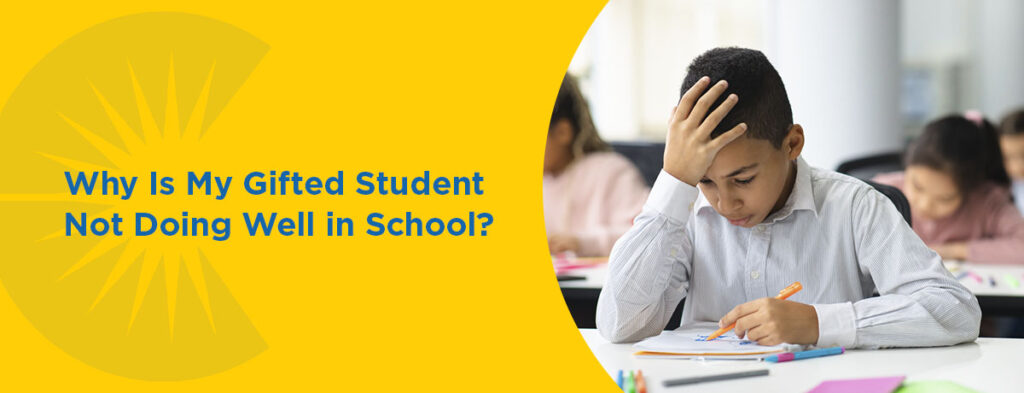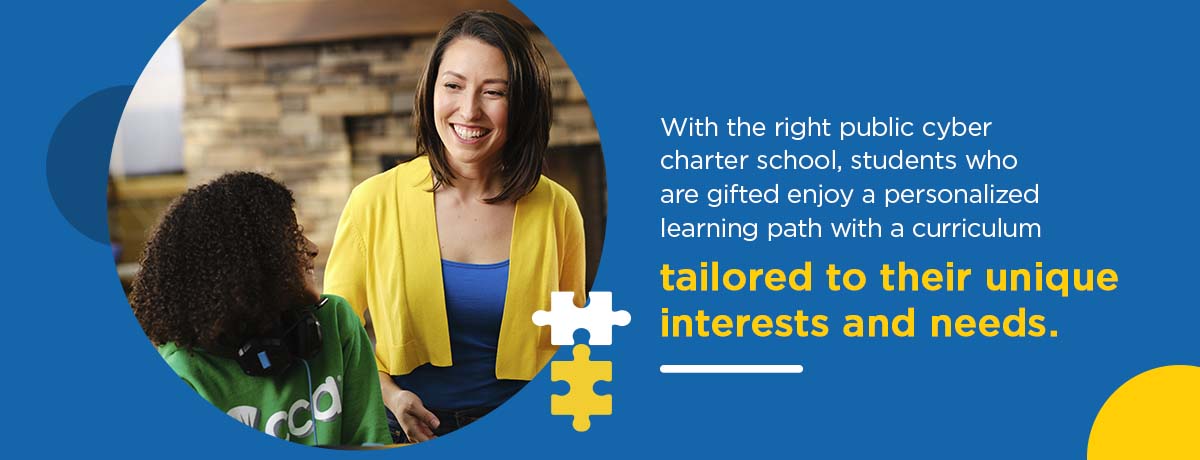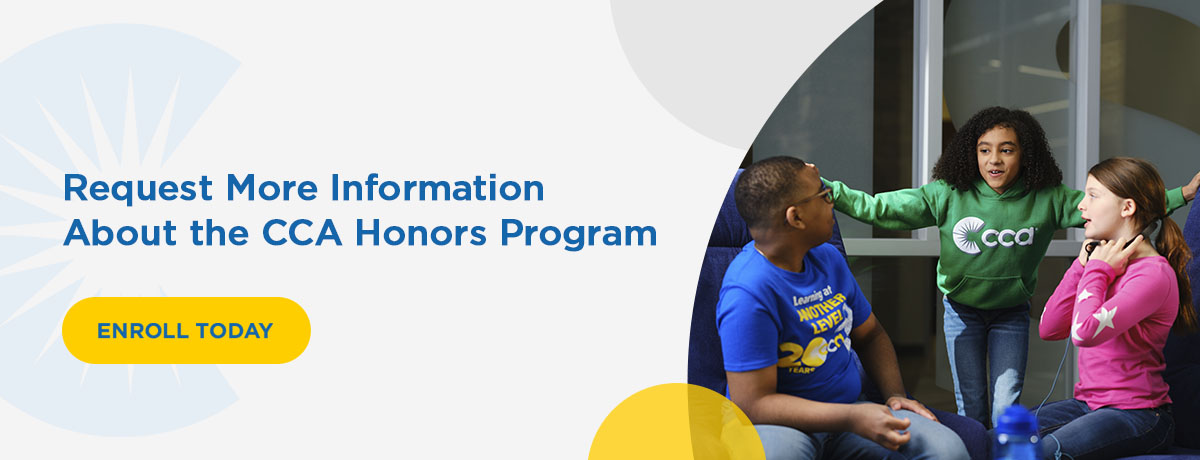Enrollment Now Open for Second Semester. Click Here
Enrollment Now Open for Second Semester. Click Here


Students who are gifted show great aptitude in intellectual ability. So why do these students sometimes struggle in school? Even though they show great potential, living up to the high expectations set by their teachers, parents, and themselves can lead to stress and disinterest. If you have a gifted child struggling at school, continue reading to discover why they may fall behind.
Historically, the term gifted refers to children with a high potential of becoming successful adults. In a school setting, the term “gifted” refers to how well students perform compared to other students. The factors that go into identifying students who are gifted include:
You may also recognize these characteristics in a gifted child:
Honors programs within schools have varying qualifications. The qualifications are commonly set based on the students’ achievement throughout the program, school, or district.
Children often have varied talents and strengths, and they may not correspond with traditional academic achievement. Talented children aren’t always students who are gifted for a variety of reasons. Some reasons a talented student may not qualify for an honors program include the following:
A student who is gifted demonstrates advanced academic capabilities that require modifications to the standard curriculum to keep up with their achievement.
While many people think students who are gifted get perfect grades and scores in school, that isn’t always the case. Underachievement, or a discrepancy between a student’s ability and their grades, is common among these children for the following reasons.
Perfectionism is a harmful trait for many people, and students who are gifted are especially prone to experiencing perfectionism. Perfectionism is a trait that causes an individual to fixate on completing a task or achieving a goal to almost impossible standards. A perfectionist who receives straight A’s on their report card might fixate on one assignment they received a lower grade on, even though they achieved almost perfect final grades.
Unfortunately, perfectionism can lead to negative mental health problems, including anxiety, depression, and obsessive-compulsive disorder (OCD). Perfectionists often feel they are never good enough due to their own unreasonably high expectations. Children who are gifted often grow accustomed to high achievement and might slip into perfectionism when their reality falls short of their high expectations.
When students who are gifted receive an education that’s not tailored to their high achievement levels, they can quickly become bored. Underachieving gifted students usually face boredom in classrooms where they are not intellectually challenged. They may demonstrate a passion for learning when home, but their grades could plummet due to a lack of interest at school.
Children who are gifted may also have attention deficit hyperactivity disorder (ADHD). Sometimes, giftedness might mask a child’s ADHD, or a teacher may miss giftedness in students with ADHD due to disruptive behaviors.
Both students and parents can approach academics with unrealistic expectations. When students have excessively high expectations for themselves, falling short can cause them to lose interest in their education.
When parents have unrealistic expectations for their gifted children, it can lead to stress, burnout, and decreased interest in their academics. If a student believes there is no way to make their parent or guardian happy, they may give up trying altogether.
In addition to pressures from academic and family expectations, students who are gifted may struggle in school because of social issues, and these challenges can certainly impact a student’s ability to perform academically. Some of the issues these students can face in school include:
Another significant reason some kids may face social challenges is asynchronous development, where the student does not develop evenly across all areas. The student may have superior intellect and the academic capacity beyond their years, but may be lagging in their social skills. The discrepancy between their intellectual abilities and emotional intelligence can make it hard for some gifted kids to excel in a traditional school setting.
When students who are gifted experience negative social situations due to their abilities, they may downplay or mask their true potential to fit in. Social challenges for students who are gifted can also extend beyond school. A child who is gifted may not be as successful as they can be due to issues outside of school, such as:
Gifted students from minority backgrounds may also face a unique set of social struggles, as they may feel ostracized in various areas of their lives. Even from the outset, it can be more challenging for children from diverse populations to be identified as gifted.
Burnout occurs when an individual experiences excessive or prolonged stress. It’s common to lose interest and energy after dealing with stressful, mundane, or overwhelming tasks for an extended period. Gifted learners experience burnout when their expectations are too high, resulting in stress and anxiety.
If your gifted student shows signs of losing interest in their academics or seems resentful toward school, they may be experiencing burnout.
The emotional symptoms of burnout, such as detachment, helplessness, and cynicism, can cause students to stop caring about their schoolwork. Burnout can also have physical symptoms, like fatigue, headaches, insomnia, and even lowered immunity.
If you have a student facing some of the challenges of being gifted and find traditional school lacking, you may consider a public cyber charter school as a helpful option. A student who is gifted may find it easier to thrive in a public cyber charter school for several reasons:

With the right public cyber charter school, students who are gifted enjoy a personalized learning path with a curriculum tailored to their unique interests and needs. A personalized learning path can be exactly what a child needs to find their sessions more engaging again. Through tailored learning paths, students may enjoy an increased interest in learning and improved grades.
If you find that your gifted student is struggling because of asynchronous development, the flexible scheduling and pacing of a public cyber charter school can be beneficial. In a cyber charter school, students can learn at a pace that suits them well. This freedom can help them achieve their academic goals more rapidly and prevent burnout more easily. This is in stark contrast to traditional schools that teach all students the same thing at the same speed.
Some children, including gifted children, are far more likely to experience sensory sensitivities. Environments that can cause sensory overload are standard throughout a traditional school day, which can make it challenging for a gifted child to thrive. As a parent choosing a public cyber charter school, you have the freedom and flexibility to teach your gifted child in an environment that suits them best. By enrolling your gifted learner in a public charter school, you are able to eliminate environmental factors that can trigger sensory overload.
A quality public cyber charter school will offer a range of enriching social opportunities and valuable family and student resources. These opportunities and programs help parents strike an excellent balance between having the flexibility to teach at home while still providing important social opportunities with other students in the community. At CCA, we offer more than 1,000 field trips, clubs, internships, and special events that keep parents and children plugged into their communities.

CCA recognizes the potential of students who are gifted and understands the unique struggles they may face in school. With our personalized learning plans in our honors programs, accelerated and gifted students receive an education tailored to their needs and interests. Our qualified teachers provide close monitoring for gifted students in addition to end-of-year assessments.
Learn more about our honors program today and find out how CCA can challenge your student and help them grow.
Enrollment Now Open for Second Semester. Click Here